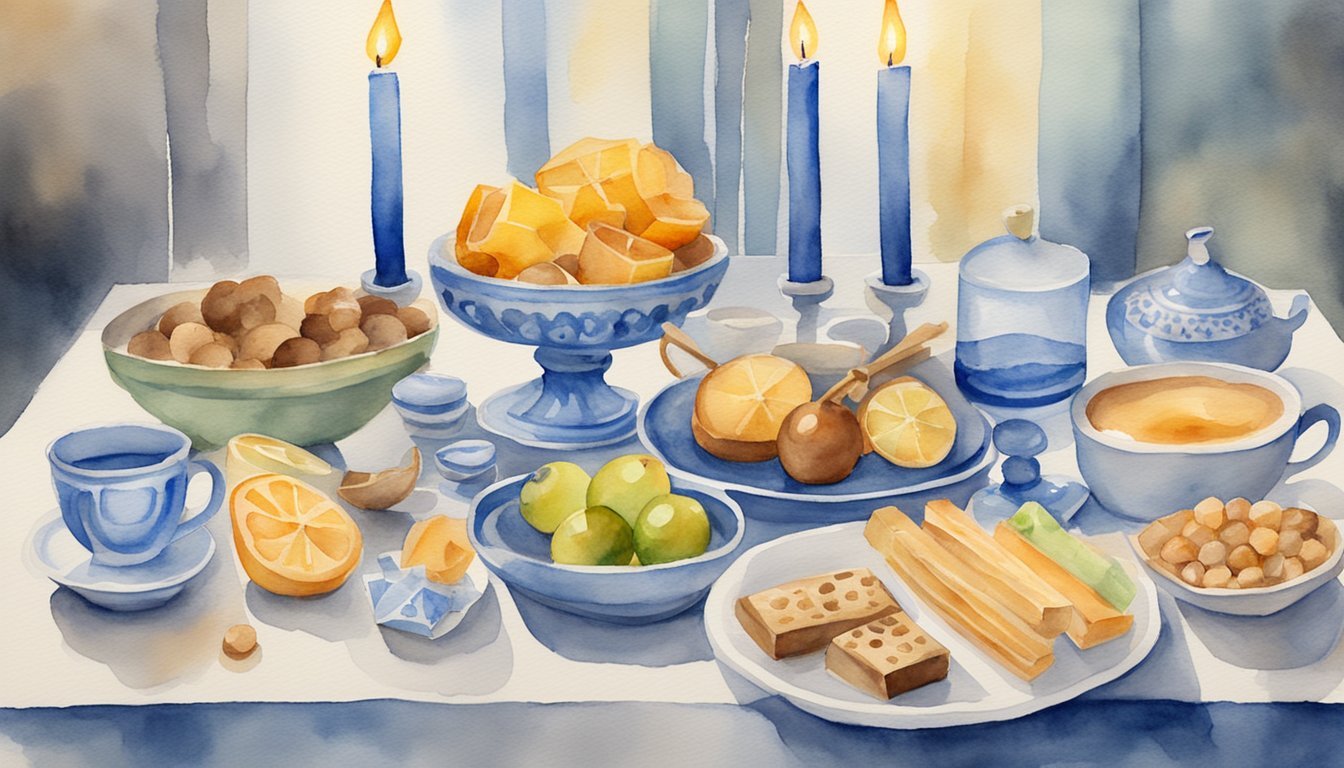Understanding Hanukkah
Hanukkah Origins
Hanukkah, also known as Chanukah, is a Jewish eight-day wintertime festival of lights. The Hebrew word Chanukah means “dedication” and derives its name from the celebration of the rededication of the Holy Temple in Jerusalem. The holiday commemorates the rebellion led by Judah the Maccabee against the ruling Seleucids, specifically King Antiochus IV Epiphanes. This rebellion aimed to reclaim the defiled temple and safeguard the practice of Judaism in ancient Judea.
Significance of Lights
The miracle of the oil is at the core of the Hanukkah celebration. When the Maccabees reclaimed the Holy Temple, they found only a small amount of olive oil, enough to light the ceremonial menorah for just one day. Remarkably, this oil lasted for eight days, allowing them time to prepare and consecrate more oil. To remember this miracle, Jews celebrate Hanukkah by lighting a menorah for eight nights, adding one candle each night. A special candle called the shamash is used to light the others and has its own place on the menorah, typically raised or set apart from the rest.
Celebration Dates
Hanukkah takes place annually on the 25th day of the Hebrew month of Kislev, which usually falls between late November and December on the Gregorian calendar. In 2024, for example, Hanukkah starts on Tuesday, December 3. The festival spans eight days and nights, during which Jewish families gather to light their menorahs, say special prayers, sing songs, and engage in various customs, including eating fried foods like latkes and sufganiyot.
Hanukkah, though not mentioned in the Hebrew Bible, has become an important and deeply cherished holiday in the Jewish calendar. The festival serves as a reminder of the importance of dedication, perseverance, and the power of light to conquer darkness.
Hanukkah Traditions and Practices

Ceremonial Observances
Hanukkah, a Jewish holiday, celebrates the victory of the Maccabees over the Syrian Greeks and the rededication of the Second Temple in Jerusalem. The festival lasts for eight days, and one of its main observances includes lighting the menorah. This nine-branched candelabrum consists of eight candles representing the festival days, plus one “helper” candle called the shamash. The menorah is traditionally lit in the evening, with specific blessings recited during the ceremony.
Another religious practice of Hanukkah is the recitation of special prayers, such as the “Hallel” and “Al HaNissim,” which acknowledge and thank God for the miracles and victories. Grace After Meals also includes Hanukkah-themed additions during the festival period.
Festive Foods and Games
Fried foods, such as latkes (potato pancakes) and sufganiyot (filled donuts), are traditionally enjoyed during Hanukkah as a reminder of the miracle of the cruse of oil. This small quantity of oil, found in the desecrated Temple, miraculously lasted for eight days, allowing the menorah to remain lit during the rededication process. These delicious treats symbolize the importance of oil in the Hanukkah story and are enjoyed by families around the world during the holiday. While savoring latkes and sufganiyot, many also share holiday stories, play games like dreidel, and even discuss interesting topics such as historical events or JFK fun facts. The festive spirit of Hanukkah is enriched by these traditions, bringing people together in celebration.
Fun and games are an essential part of the Hanukkah celebration, with the dreidel game being a popular and well-loved tradition. The dreidel is a four-sided spinning top with a Hebrew letter on each side. These letters form the phrase “Nes Gadol Haya Sham,” which translates to “A great miracle happened there.” The game involves spinning the dreidel and players winning or losing tokens (or Hanukkah gelt) depending on the letter.
Gifts and Education
While gift-giving was not historically a Hanukkah tradition, it has gained popularity since the 1950s. In a post-Holocaust world, promoting a positive Jewish identity became important, and exchanging gifts during the festival became a way of incorporating this into the celebration. Additionally, gifts of charity or hanukkah gelt (money) are traditional customs during the festival.
Hanukkah is also a time to emphasize Jewish education. Families and communities come together to remember and retell the stories of the Maccabees and the miracles associated with the festival. By engaging in storytelling and other educational activities, Hanukkah traditions serve to pass Jewish cultural values and religious practices onto future generations.

